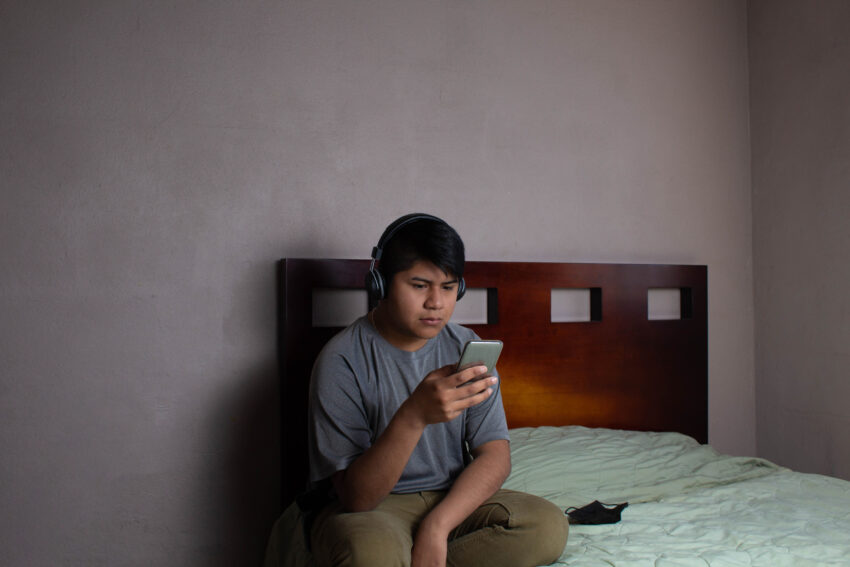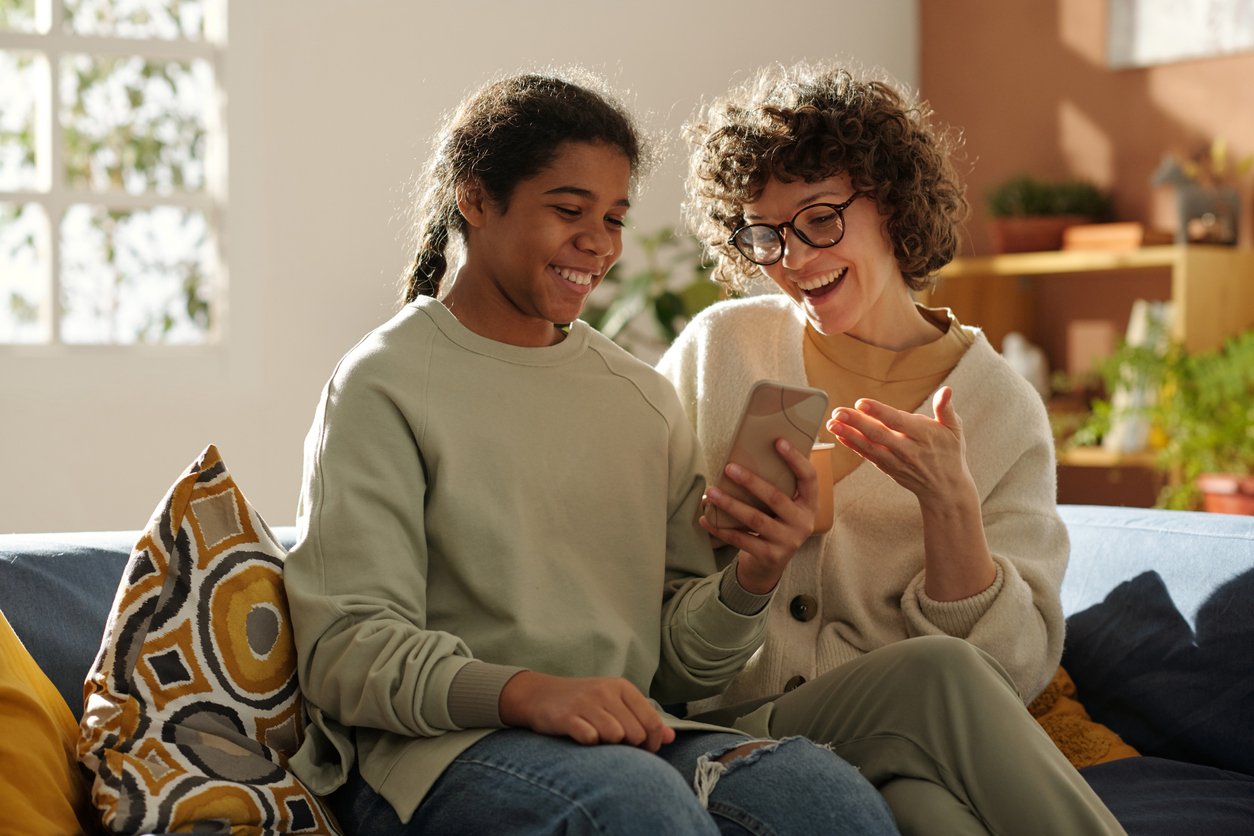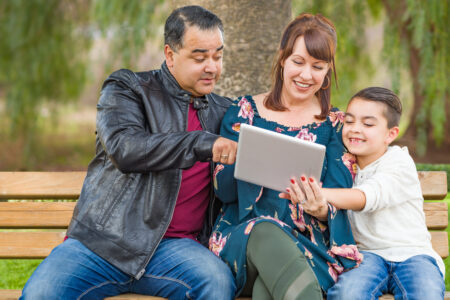
Share On Social!
Social media has become a part of everyday life and routine, especially for young Latinos.
While social media can offer supportive communities and educational resources, it can also bring harmful impacts and habits.
Nearly half of Latino parents are “extremely concerned” over the potential harmful impact that heavy social media use can have on their pre-teen children’s mental health, according to new data from the Brookings Institution.
“The Latino community is particularly vulnerable to mental health challenges as a result of social media use,” according to Brookings report.
Let’s dig deeper into what the data says and how it affects Latinos.
Young Latinos and Social Media
The Brookings Institution survey, led by the Omidyar Network, asked parents about their level of concern about the mental health of teenagers and pre-teens who regularly use social media.
71% of Latino parents report that social media use is high among their children ages 10-18. Many of those children use social media “several hours a day” or “almost constantly.”
That percentage rises to 81% of Latino parents with children in the older range of 15-18.
Parents in California report higher social media usage among their children (73%) than parents in New Mexico (66%) and Texas (66%).
“The high social media usage among pre-teens and teenagers is concerning given the correlation between high screen time and poor mental health outcomes,” according to the Brookings Institution.
Concerns of Latino Parents
The Brookings Institution survey shows that 97% of Latino parents support strengthening safety standards required for social media platforms to make social media safer for children of all ages by better protecting children’s privacy through apps and social media platforms.

There are 17 states that include media literacy language laws as of March 2023.
“Research shows that these types of policy interventions make meaningful differences in digital literacy, identifying false information, and internet safety, especially among children,” according to the Brookings Institution.
Latino parents also highly support schools addressing the dangers of social media use.
93% of parents support including digital and social media literacy in the curriculum of schools so all children are informed of the harms of social media and given some skills to help them use social media more safely.
“Congress should feel confident leaning on this issue, as Latino parents overwhelmingly support common-sense approaches to increase children’s digital literacy and knowledge of the dangers that come with using these platforms and ensure accountability for companies who promote and market social media apps and platforms to adolescents,” according to the Brookings Institution.
How to Create Healthy Social Media Habits
With the reality of daily social media use among young Latinos, it’s crucial to cultivate healthy usage habits.
What are ways teens and adults can practice healthy habits when using social media?
Check out “5 Ways to Practice Healthy Social Media Habits.”
You also take a step further to advocate for a healthier community.
Download a Salud America! Health Equity Report Card, which has local data, maps, and gauges several factors including:
- Physical and Mental Health
- Education
- Healthcare access
The report card allows you to explore maps, data, and gauges to compare your local health equity issues to the rest of your state and nation.
Then email your report card to local leaders and share it on social media to raise awareness and action for change!
GET YOUR HEALTH EQUITY REPORT CARD!
Explore More:
Mental HealthBy The Numbers
142
Percent
Expected rise in Latino cancer cases in coming years




I know this is a two year old article, but Bias is another reason why some Hispanic people think about or attempt suicide. I’m actually part Filipino, German and English and I ended up looking stereotypically Hispanic and my surname is Spanish due to my Filipino side since the Spanish colonized the Philippines. I’m a woman though and I’ve thought about it for a number of reasons involving my health from a rare disorder that caused learning issues and also I have obvious cancer symptoms Ive tried getting help with. I’ve also been treated poorly and sometimes in very scary situations because of obvious Bias and Prejudice due to my appearance. I’m just saying Bias against people who are Hispanic and “look Hispanic” is a real thing. I apologize if it was in this article but I didn’t notice it, But I do apologize if its in there. I just think it needs to be addressed more. Thank You